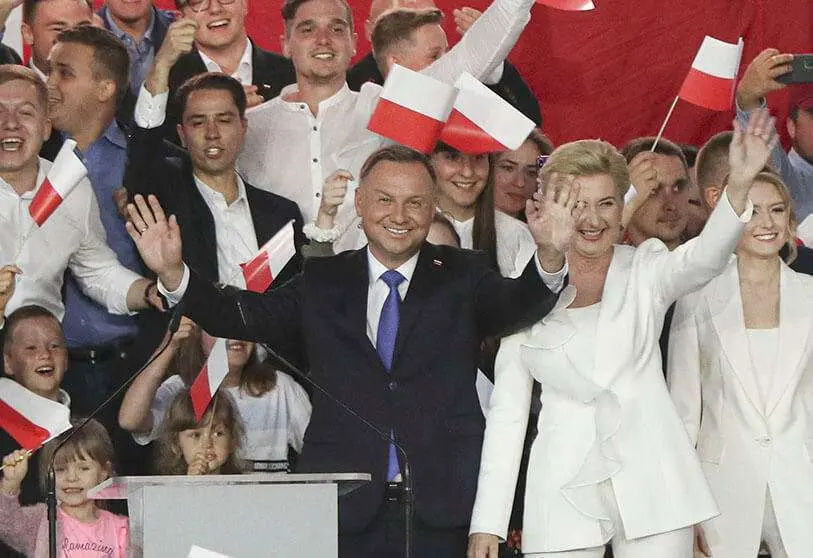Change will wait in a fractured Poland

The very narrow victory of the current president of Poland, Andrzej Duda, over the mayor of Warsaw, Rafal Trzaskowski, is a setback for those who wanted to put a country back on the European rails, a country that Brussels has opened up to four files on the grounds that its reforms endangered the rule of law. Backed by the ruling Law and Justice Party (PiS), Andrzej Duda is the full executive of the programs designed by Jaroslaw Kaczynski, considered the archetype of fundamentalism: a justice system under the protection of the executive; an abomination of the rights of the LGBT community; a fierce opposition to community admission quotas for immigrants and refugees, and a rather lax view of environmental balances. All of this, moreover, is accompanied by an armoured pension system and subsidies and benefits for the older population.
In the end, the surveys that gave a huge advantage to Duda, which would ratify the essentially ultra-conservative view of Polish society, were not confirmed. Barely more than 1% has separated him from a Trzaskowski, a Civic Coalition (KO) candidate, who has been championing a reformist process, fully anchored in the European Union and its values of solidarity, free movement, especially of ideas, and full respect for freedom and the development of human rights. Such a narrow margin between two such opposing visions of the European Union and of the necessary reforms in Poland highlights the de facto partition of the country into two halves that are far removed from each other. This is the re-emergence of the eternal divide between generations, as shown by the fact that Duda received a majority of votes from the over-60s and from the rural world, as opposed to the young, intellectually-educated and essentially urban vote.
Without executive power, the president of the country nevertheless enjoys a great prerogative: to veto the laws passed by Parliament. Had the KO candidate succeeded, it is very likely that general elections would have been necessary as well. With Duda at the helm for another term it seems quite obvious that the desired change will have to wait for a while, and that the PiS will therefore continue to be under the watchful eye of Brussels. That the candidate and renewed president has displayed anti-Semitic proclamations in the final stretch of the campaign is also particularly serious in the country that is home to the most emblematic centre of infamy, Auschwitz, at a time when the EU is seeking to nip in the bud the buds that are springing up in its midst.
The PiS and KO do agree on one thing, their attachment to the United States, which is even morally superior to their attachment to the European Union. In fact, both Duda and Trzaskowski have sought the support of Donald Trump and Barack Obama, respectively. Duda even went so far as to travel to Washington to ask Trump for the 25,000 soldiers that the American president supposedly intends to withdraw from his bases in Germany to be installed in Poland. Both leaders coincide in the fear that all their compatriots feel of Russia, whom they distrust because they cannot try again an operation of invasion and conquest. A hypothetical scenario, of course, that to counteract this in the event that it were to happen they still do not have sufficient confidence in the power of the European Union itself.

